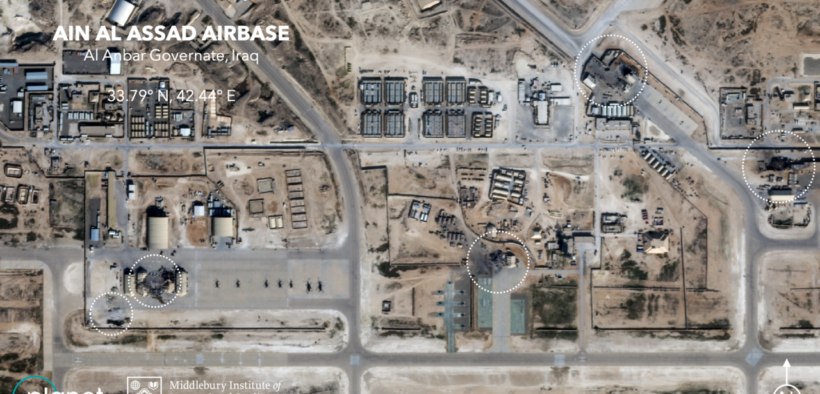34 U.S. Troops Suffer Traumatic Brain Injury from Iran’s Counter Attack

In contrast to initial reports dismissing injuries among American service members, 34 American troops suffered traumatic brain injuries from Iranian airstrikes on Al Asad Air Base in Iraq earlier this month.
On January 8 Iran fired over a dozen ballistic missiles at Iraqi military bases that housed U.S. military personnel in retaliation for the assassination of Iranian General Soleimani days earlier. Iran reportedly advised Iraq in advance of the attack, and Iraq passed that information on to the U.S. Despite initial reports from the U.S. military saying that there were no casualties, the following week the Pentagon reported that 11 U.S. service members had suffered concussions or traumatic brain injury (TBI) as a result of the strike. This week that number was increased to 34 service members with TBI. So far 17 of those injured have returned to active duty in Iraq, 9 are being treated in Germany, and the rest have returned to the U.S. for treatment.
Traumatic Brain Injury and The Military
The change in numbers following the January 8 attack makes sense because the symptoms of TBI may not appear until hours or days later. Initial symptoms can range from disorientation and confusion to loss of consciousness and even going into a coma. The 34 service members injured in this month will join over 400,000 others who have also been diagnosed with TBI. Current tracking of military personal with TBI does not differentiate between injuries sustained in combat and those from other causes. However, the Department of Defense estimates that 22% of all combat casualties from the conflicts in Iraq and Afghanistan are brain injuries, the rate for Vietnam is 12%.
TBI is often referred to as the signature injury of Iraq and Afghanistan and the high rates of TBI are due to both an increasing understanding of brain trauma and the types of weapons used in modern combat. Blast force from improvised explosive devices (IEDs) as well as conventional weapons like the ballistic missiles used by Iran can cause TBI, as can any serious impact to the head.
TBI is characterized by disruption to the functions of the brain and can lead to short and long term changes in how the brain works. Symptoms can vary widely and may include memory loss surrounding the event, nausea, mood changes, cognitive impairments, and vision, speech, or sensory deficits. For moderate and severe cases of TBI the symptoms can be permanent. TBI is also associated with an increased risk of suicide, which increases further for those who suffer multiple head traumas, and there are links between TBI and Post Traumatic Stress Disorder (PTSD).
Trump’s Comments on the Incident
On January 22 the AP questioned President Trump about why the initial reports from the White House stated that no Americans were harmed in the attack, he responded, “I heard they had headaches and a couple of other things … and I can report it is not very serious.”
These comments have drawn sharp criticism from those familiar with TBI. The Veterans of Foreign Wars (VFW) has a posted statement on their website calling on the President to apologize and noting that “TBI is a serious injury that cannot be taken lightly.”
Representative Bill Pascal (D-NJ) of the Co-Chair of the Congressional Brain Injury Task Force sent a letter to the Undersecretary of Defense and the Assistant Secretary of Defense for Health Affairs on January 23 citing the Presidents comments. In the letter Pascal asked for details about the aftermath of the attack and questioned why troops “continued to operate in exposed position” in spite of warnings of the attack. He also asks for reassurance that the DOD and Department of Veterans Affairs remain committed to understanding these types on injuries, despite the President’s comments, and mentions $50 million in new funding that was granted to the DOD and VA last year for research on concussions.
New Developments in Treating TBI
For the hundreds of thousands of veterans and millions of other Americans impacted by TBI there is currently no cure. Research on treatment and prevention is exploring several avenues. Scientists from Northwestern University have been studying the use of nano-particles to reduce brain swelling after TBI and published a study last week with promising results. A team at the University of Texas Medical Branch Galveston has been researching how TBI reduces growth hormone production and why growth hormone replacement can help TBI patients improve.















